A persuasive essay, or argumentative essay, is one in which you use logic and arguments to convince or persuade your readers to agree with a specific opinion or idea.
A good one employs excellent research and choice of words to strongly present the writer’s opinion and convince the readers to agree with it.
To write one, you must research thoroughly, write convincingly, and arrange your points succinctly. This article will gain more insight into the prewriting stage, the writing stage, and the editing stage. You will also learn winning tips that will help you write outstanding examples.
Persuasive Essay Examples

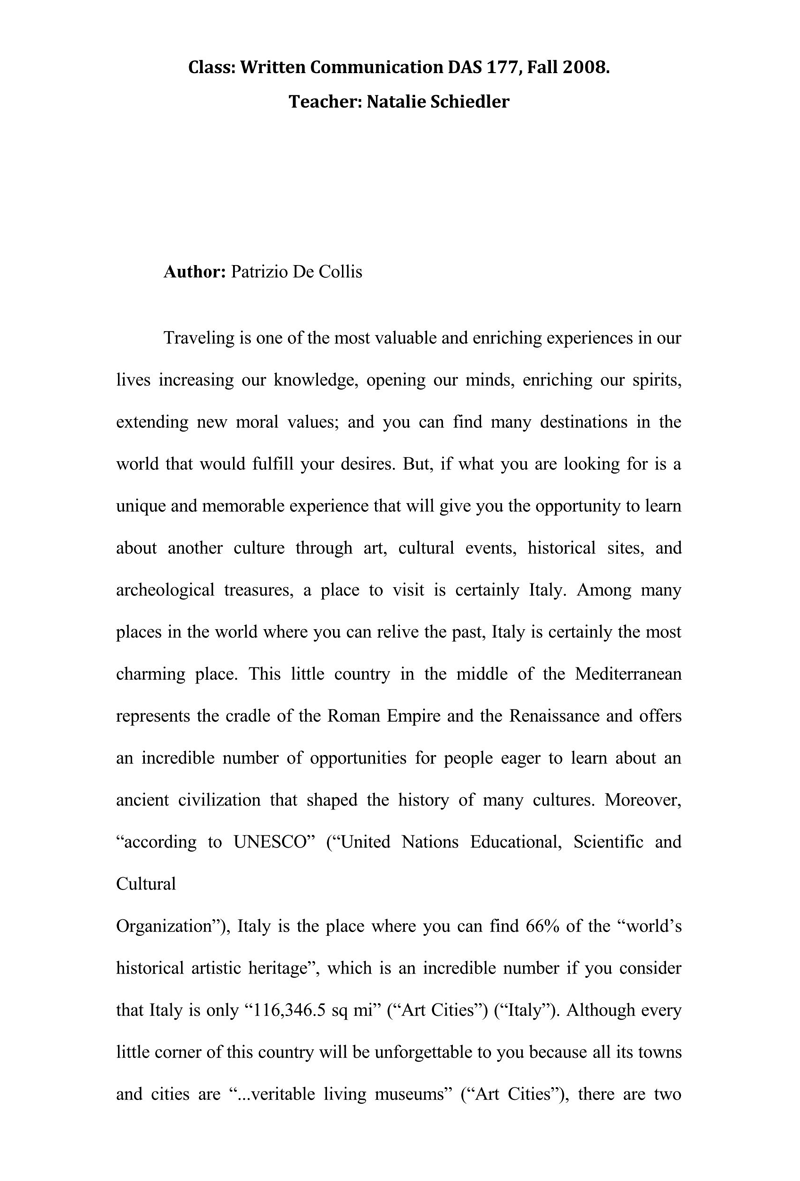

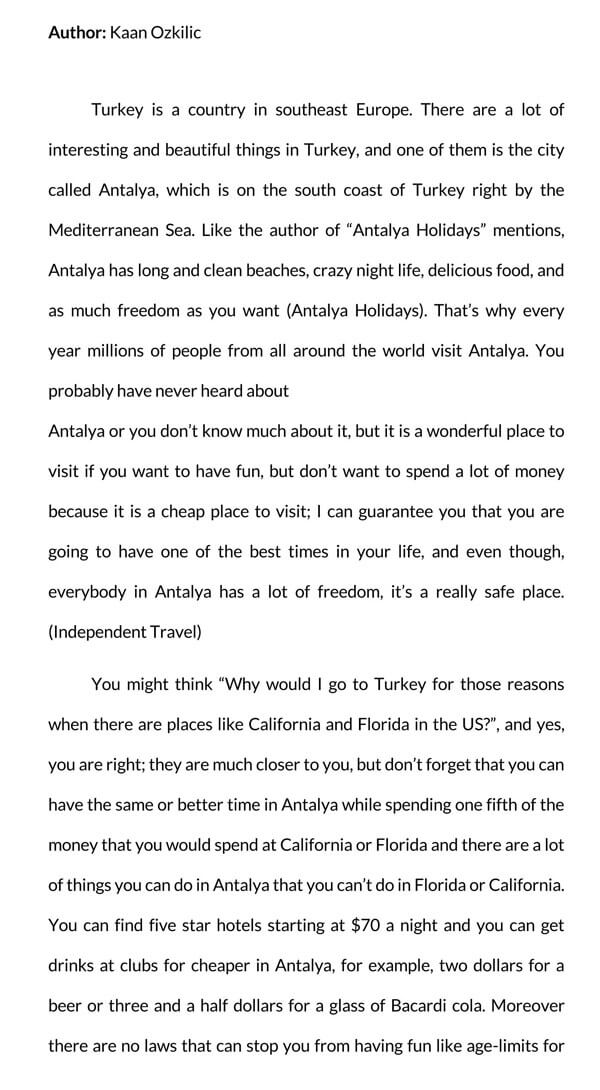

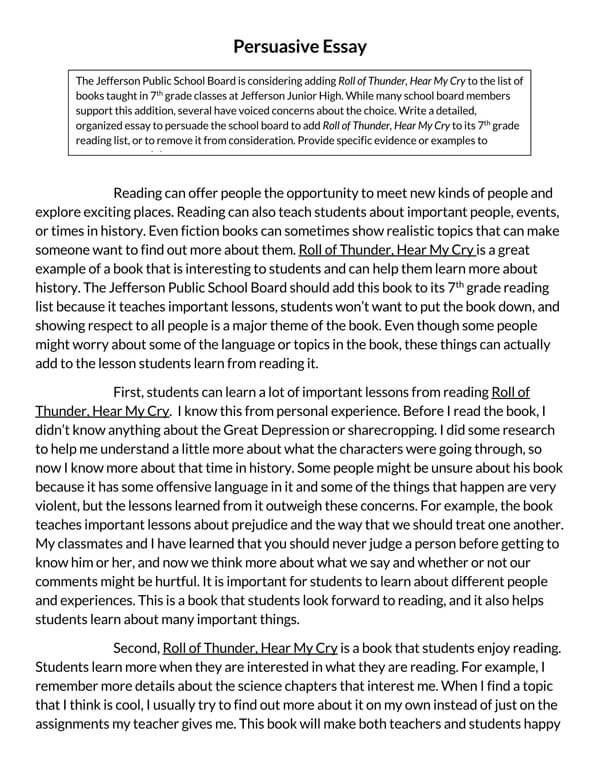
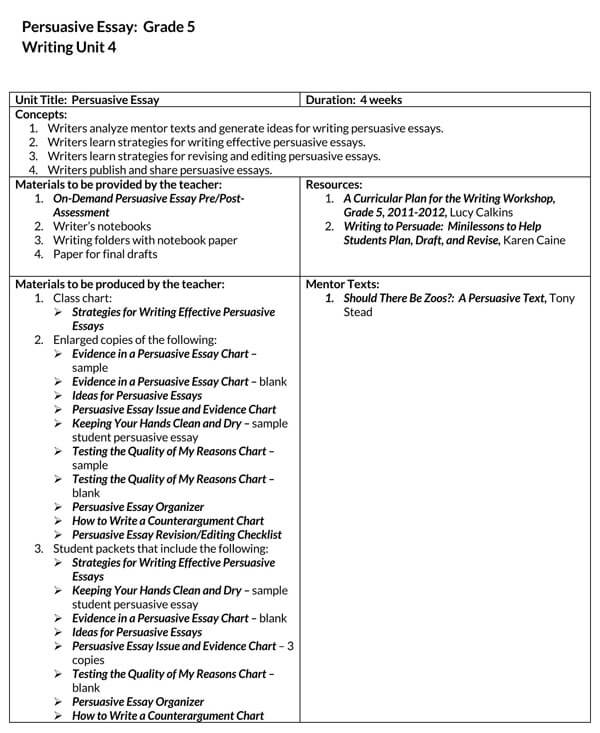
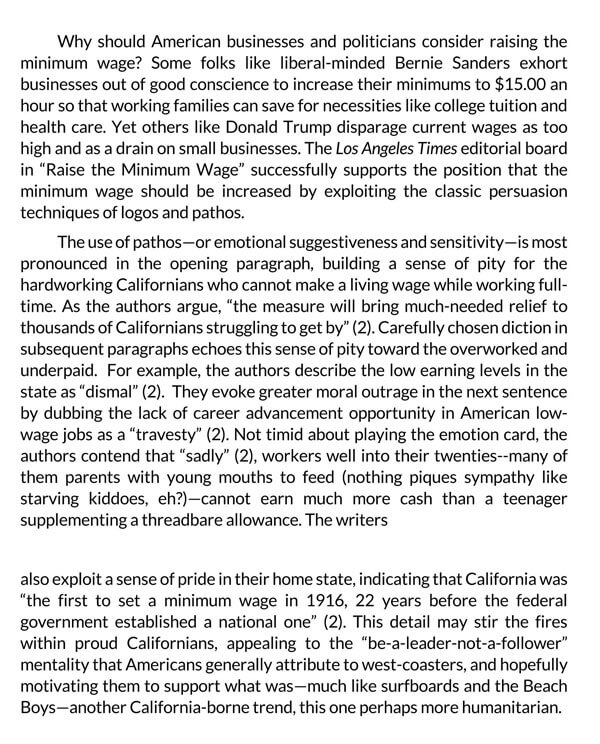
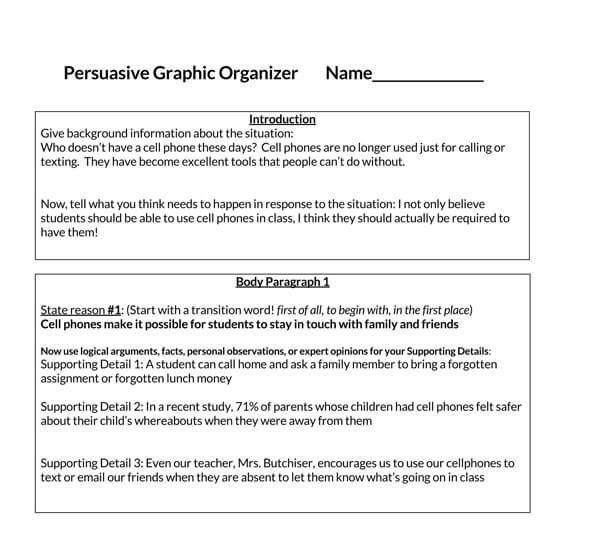

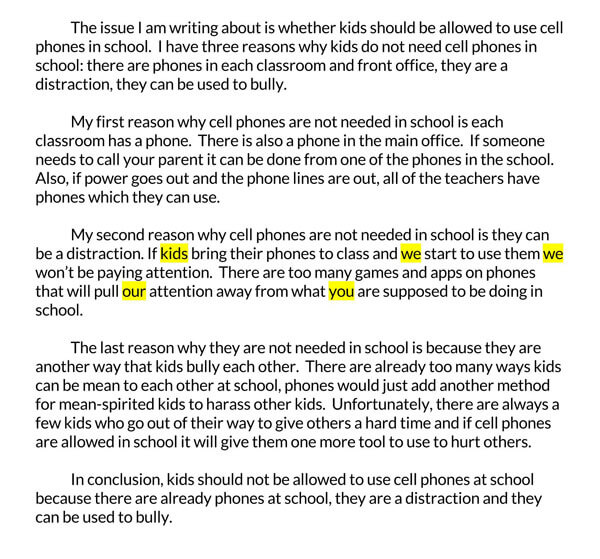



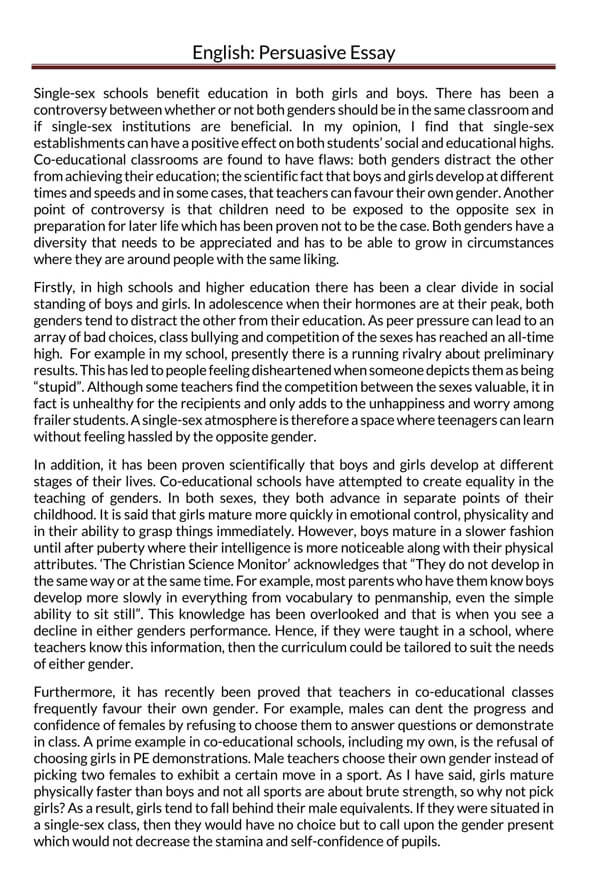

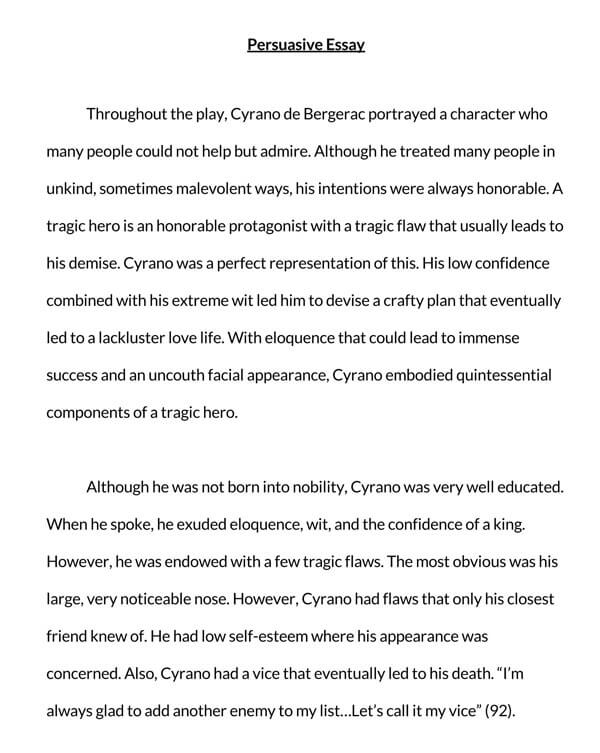
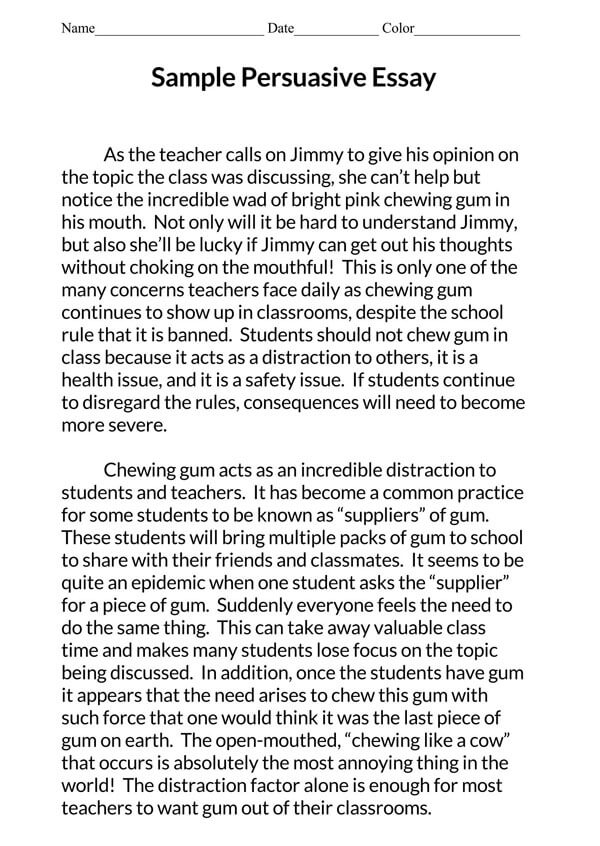
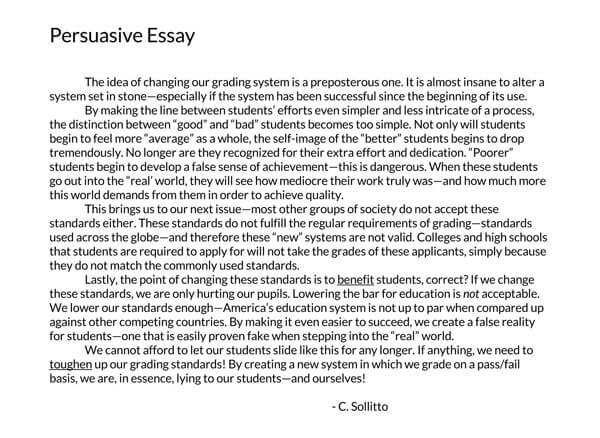
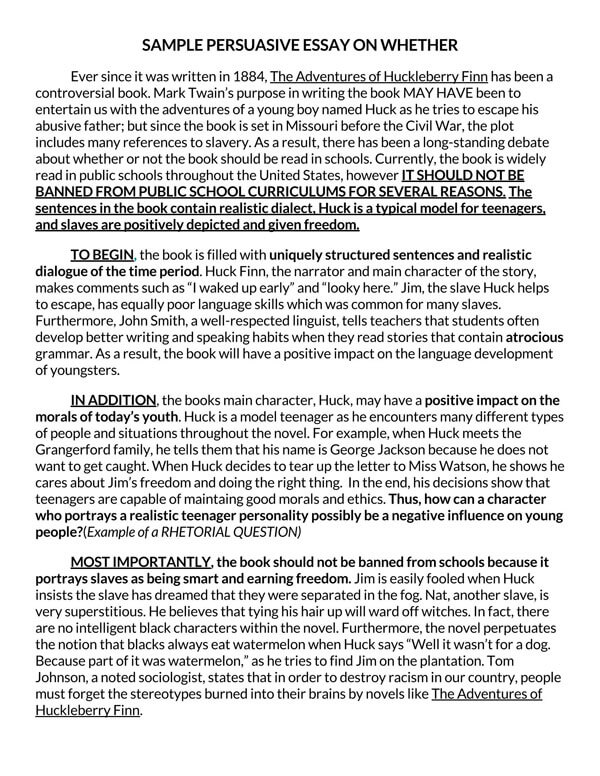
Fundamentals of Writing a Great Persuasive Essay
To write a great persuasive essay, you need to follow the outlined writing process. Below are tips for each stage of the writing process:
Prewriting stage
This stage is critical to the success of your writing. At this point, you plan the different parts of the essay.
These are the steps to take:
Choose a position you’re passionate about
Choose a topic and select the position you would love to advocate for. It would help if you chose a side you believe in, as that will make the research, writing, and argument more personalized. Opting for a topic you strongly believe in will make the defense easy. Also, because you are knowledgeable on the subject, you will not have issues with the research.
Understand the audience
To write a unique essay, you need to consider your audience. Remember that your writing should be suited to your audience. Check whether they are knowledgeable and inclined to believe your arguments. If you’re writing for a semi-literate audience, using high-sounding words will be ineffective as they won’t understand you. Instead, make it easy, simple, and easy to understand.
Research both sides thoroughly
You must thoroughly research the different sides of the argument to put up a convincing essay example. By researching both sides, you will discover points for and against the opinion and the loopholes in the different opinions. Utilize your school’s resources, such as a library, reference materials, and academic journals.
Identify convincing evidence
After conducting your research, select the most convincing evidence, as it will form the basis of your essay. Also, discover the significant points for the opposite team.
Create a working outline or structure
In this stage, you must create a working structure that will guide your essay. To do this, you must think critically about the pros and cons of your argument and note the places to put forward your most robust evidence.
Your outline will also keep you organized from the beginning, with supporting facts, figures, and pieces of evidence. So, for each point, you must outline the significant facts and research to support it. A working outline also helps you define your argument concisely and logically to make your writing process more manageable.
Here is a good sample outline to use:
Introductory paragraph
- Get your readers’ attention with a hook: A hook is the one big idea that hooks your audience. It can be a significant promise, quotation, unusual statistic, question, premise, or argument that will keep your readers engaged with your essay.
- Provide an overview of the argument: After writing the hook, the next step is to outline the argument.
- Close with the statement: Close by providing a thesis statement that reveals the position of the argument.
Body paragraphs
- Each paragraph should tackle one part of the evidence.
- Back up each paragraph with adequate supporting facts, figures, and pieces of evidence.
Opposing view paragraph
- In the opposing view paragraph, explain and counter the significant points of the opposite view.
Concluding paragraph
- In the concluding paragraph, reaffirm and re-emphasize the thesis and supporting points.
Draft your essay
After creating your outline, the next stage is to create an initial draft.
Here are the steps to follow:
- Open the Introductory Paragraph with a hook; your hook can be a quote, a story, a question, or a strong statement. For example, for an essay on education, you can use this hook. Nelson Mandela said, “Education is the most powerful weapon you can use to change the world.”
- State the thesis statement clearly, concisely, and succinctly.
- For each body paragraph, address one reason that emphasizes your point and provide strong evidence using research results, facts and figures, real-life examples, and quotable quotes from experts.
- Make arguments using different means, like analogies, comparisons, and logic.
- Define terms and give background information. Your readers may not be deeply knowledgeable about the subject. To carry everyone along, you must define terms and provide some background information.
- Remember that the concluding paragraph must summarize the points and provide more credence to your argument. It can be a question, a plea, a recommendation, or a prediction that convinces your readers to believe your point and act in the direction you want.
How to Revise the Persuasive Essay
After scribbling your essay, the next step is to revise and review it. Remember, “The first draft reveals the art; revision reveals the artist.” ― Michael Lee. So, to refine it and take it to the next level, you must revise what you have written.
Here are some things to do when revising a persuasive essay:
Crosscheck your position on the issue
Here, you should check whether your position is coherent and well-captured. Check if your points are well explained with illustrations, analogies, and arguments. Also, check if the essay states a firm position on the topic and is backed up with adequate statistics, quotes, facts, and examples.
Review the opening
Check if the hook captures the topic and aligns with the points you want to make. Ensure the hook is captivating, persuasive, and intriguing.
Ensure coherence of paragraphs
Your paragraphs should be coherent. They should have logical evidence, supporting analogies, and illustrations. In addition, your paragraphs should be legible, brief, and concise.
Confirm validity of refutation
Verify whether you refuted the opposing views convincingly with enough evidence to support your ideas while revising.
Review the formal structure
Check for the formal essay structure. Are the paragraphs well outlined? Do the paragraphs address only one issue? What’s the word choice like? Are the paragraphs coherent and readable? Are the sentences well-written and clear?
Food for thought in the concluding paragraph
Verify if the article persuades the reader to think and act in the manner in which it is concluded.
Persuasive Essay Topics
To further assist you in your writing, we will provide you with different and appropriate topic examples.
Here are some topics you can write on:
- Should people be forced to take the Covid-19 vaccine?
- Is the American dream a reality or a myth?
- Are eBooks better than physical books?
- Should under 18 children have any abortion rights?
- Should abortion be abolished?
- Should same-sex couples be allowed to adopt children?
- Should there be limits to free speech?
- Is religion the opium of the masses?
- Should classes on emotional intelligence be part of the curriculum for high school students?
- Should wealthier people pay more taxes?
- Is the keto diet a safe way to lose weight?
- Is feminism equal to misandry?
- Should paternal leave be made compulsory?
- Should human cloning be encouraged?
- Does artificial intelligence portend great harm in the future?
- Is social media a curse or a blessing?
- Is the quality of marriages eroding?
- Is society losing its long-upheld values?
- Is marriage a curse or a blessing?
- Should euthanasia be abolished?
- Should financial education be part of the curriculum?
- Do violent TV shows and games encourage violence in real life?
- Should social media be banned for under-aged children?
- Does nature or nurture play a greater role in shaping an individual?
- Can we change our behavior?
- Can science be a tool of destruction in the world?
- Should student loans be forgiven?
Persuasive Essay Outline Examples
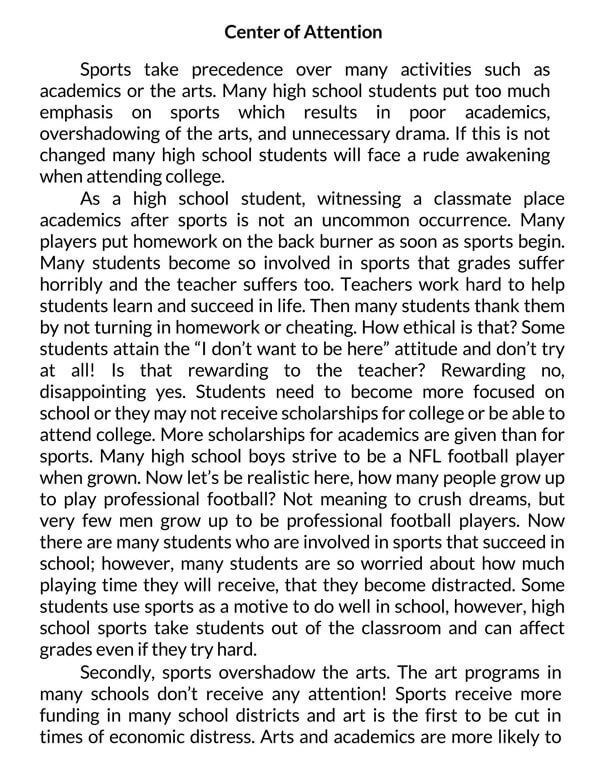
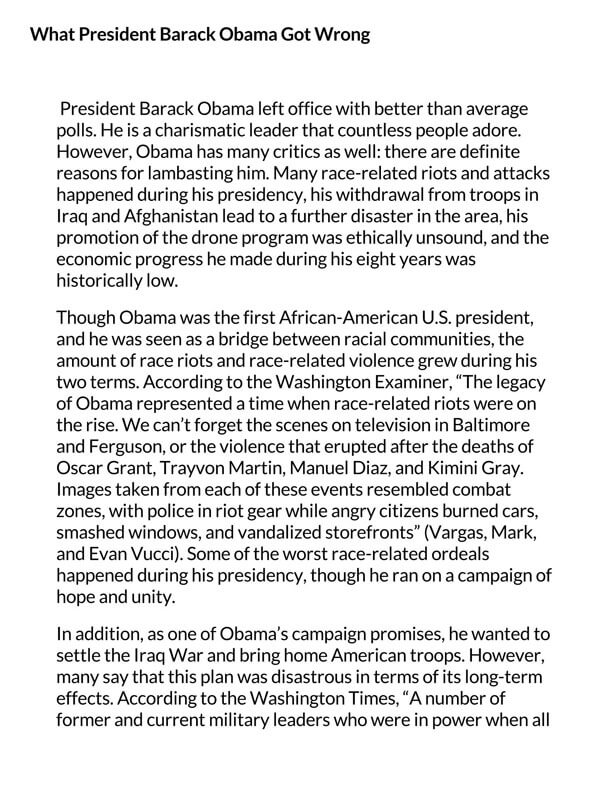






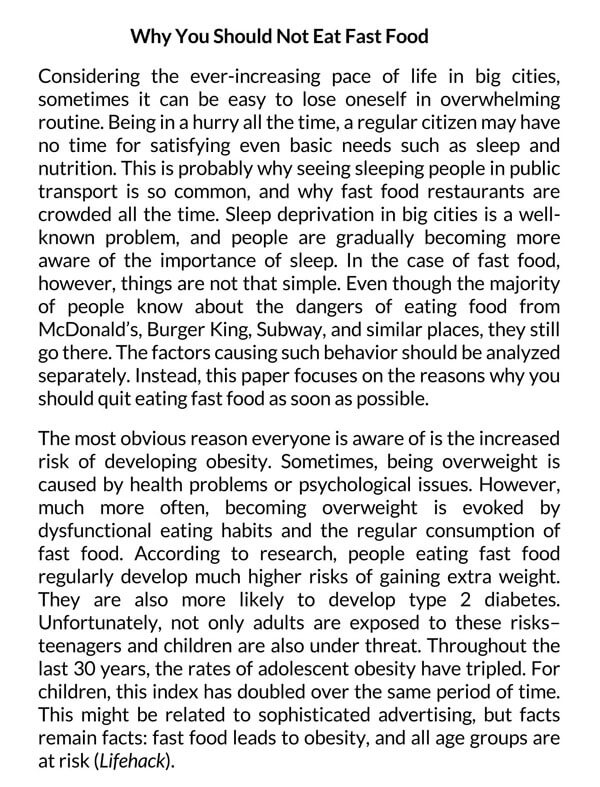

Tips for Writing a Persuasive Essay
Although writing a persuasive essay is an interesting and easy task, there are a few considerations that, if kept in mind while writing, can make the end result perfect.
Following are some effective considerations for writing a persuasive essay:
Write with integrity and empathy
To write an award-winning essay, you must employ ethos (integrity or ethics), pathos (empathy), and logos (logic). First, your writing must appeal to ethics. Second, you must convince your readers that you are writing from an ethical standpoint. That means your position must be correct. Third, disagree with ethically wrong opinions. More so, it would help if you appealed to emotions. You ought to awaken your reader’s anger, sadness, or sympathy through your essay. Your points should also be logical and supported by supporting facts and research.
Proofread and correct errors
After putting down a well-written essay, you should ensure it is grammatically correct by proofreading and correcting errors. You can use online tools as well to correct your write-up.
Key Takeaways
- A persuasive essay entails convincing your readers of a particular opinion.
- It is a significant part of life today and appears in ads, marketing campaigns, political manifestos, newspapers, and magazines.
- However, to write a convincing one, you must be thoroughly versed and passionate about the topic.
- You must also state your point convincingly, with supporting research and facts to back up your points.
- This write-up has provided you with well-written points on persuasive writing. Working with them will help create convincing essays.




